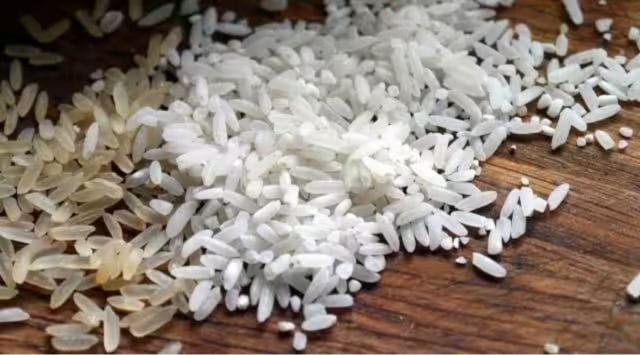Stay updated with the latest - Click here to follow us on Instagram
MP’s push to include their Basmati in GI list could harm India globally
In a meeting that took place in New Delhi on Friday, exporters of the crop from Punjab said India currently is the sole producer of premium Basmati globally.
 In a meeting that took place in New Delhi on Friday, exporters of the crop from Punjab said India currently is the sole producer of premium Basmati globally. (File Image)
In a meeting that took place in New Delhi on Friday, exporters of the crop from Punjab said India currently is the sole producer of premium Basmati globally. (File Image) In response to the Madhya Pradesh (MP) government’s push for the Geographical Indication (GI) tag for Basmati rice produced in approximately a dozen districts of the state, Basmati exporters said that such a move could have detrimental effects on India’s premier GI crop reputation on the global stage.
They said that in order to safeguard the integrity of one of India’s most esteemed agricultural product, the government should refrain from expanding the GI area.
In a meeting that took place in New Delhi on Friday, exporters of the crop from Punjab said India currently is the sole producer of premium Basmati globally. They added that only some districts of Pakistan are able to able to label their rice as Basmati.
The meeting was attended by Ministries of Agriculture and Commerce, officials from the MP government, Indian Agricultural Research Institute, and Agricultural and Processed Food Products Export Development Authority (APEDA), among others. Though officials did not agree with the MP government’s proposal, some exporters of the premium quality rice said that the matter should be resolved soon.
A GI tag is conferred upon agricultural, natural, or smanufactured products originating from a specific geographical region, signifying unique characteristics and qualities. Essentially, it serves as a trademark in the international market.
Anil Mittal, a renowned Basmati exporter, cautioned against diluting the GI tag by including MP in the Basmati classification, highlighting that GI tags are exclusively granted to Basmati grown in the Indo-Gangetic Plains (IGP), spanning seven states – Punjab, Haryana, some districts of Himachal Pradesh, Jammu and Kashmir, Uttarakhand, Western Uttar Pradesh, and Delhi. Mittal added that including MP in the GI region would have economic repercussions for India. At present, premium quality Basmati enjoys a “zero-duty” status in European countries, which would cease if the GI is extended to MP, he said.
According to APEDA, the origin and reputation of Basmati as a “long-grain, aromatic rice” from the IGP region are deeply rooted in tradition, folklore, scientific and culinary literature, as well as political and historical records. Varieties such as Dehraduni Basmati, Amritsar Basmati, and Tarawari Basmati have gained fame over centuries. APEDA officials said that snow-fed rivers in the GI region contribute to the unique characteristics of Basmati, a feature absent in Madhya Pradesh, where Basmati cultivation began only about two decades ago.
Ashok Sethi, director of Punjab Rice Millers and Exporters Association, said that even if MP claims that their Basmati possesses the same characteristics and qualities as that of the rice grown in the IGP, it cannot match the aroma that region’s Basmati possesses.
“India has fought hard to protect the Basmati name from appropriation by other nations, that attempted to create their own versions of the rice. The GI tag has been the shield safeguarding our Basmati, as it has been cultivated in the IGP area of India since time immemorial. If MP is included, it would undermine APEDA’s efforts since 1995 to secure and protect Indian Basmati through over 1,000 legal actions in nearly 50 countries spanning all continents. APEDA sources disclosed that over Rs 200/300 crores have been invested in promoting Basmati rice, defending its GI status, and establishing it as a global brand,” he said.
Sethi added that if MP is allowed, Pakistan will also start growing Basmati nationwide. “China will also benefit, not to mention the 50 or more nations that have been explicitly prohibited from using any ‘Basmati-like’ names for their aromatic rice. If Basmati loses its status, it will deprive over two million farmers of the premiums associated with cultivating this unique product,” Sethi said.







